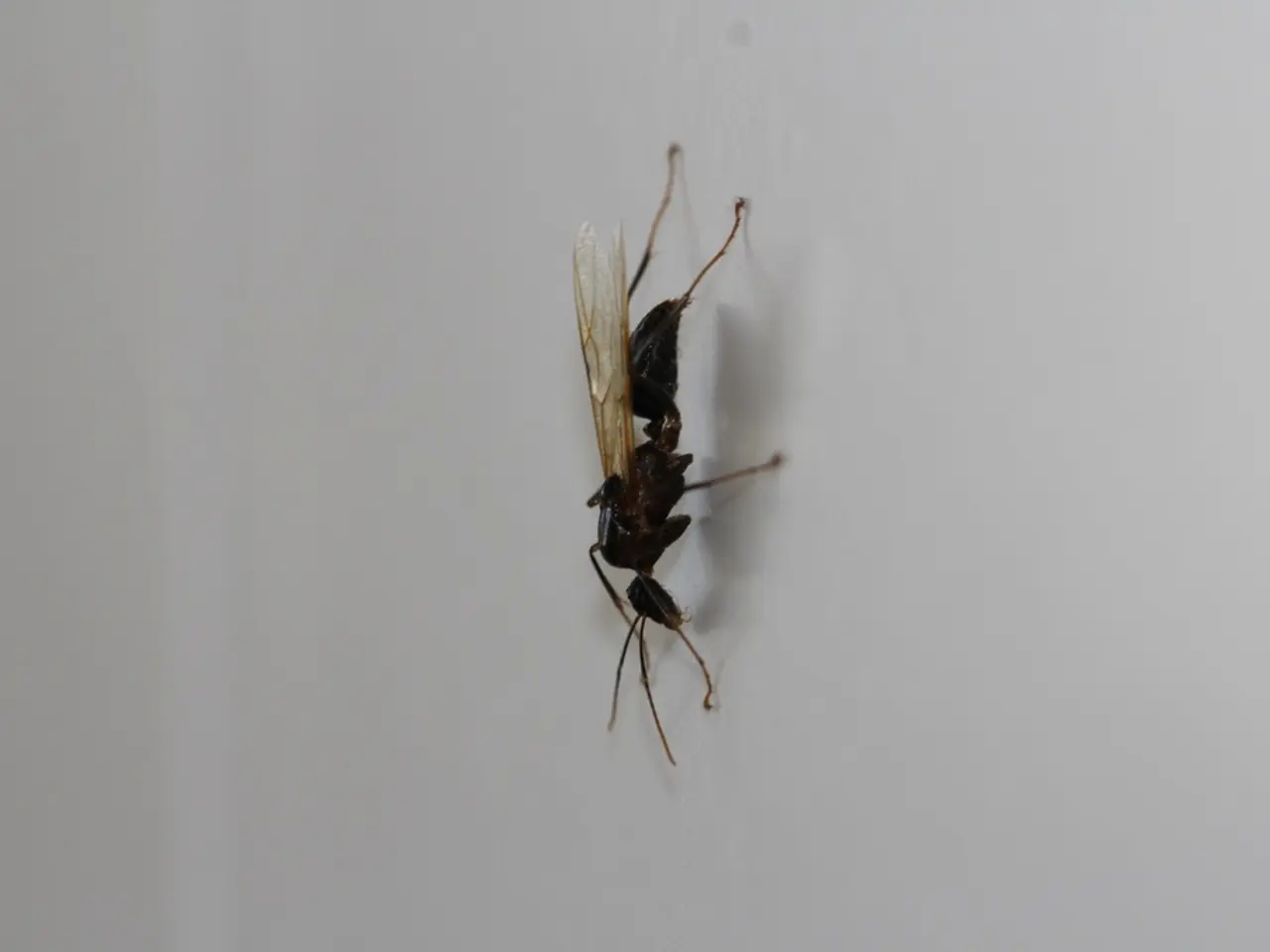Hornets of Asian Origin Persist in Expansion
The Asian Hornet, a dangerous invasive species, has been spreading rapidly across Baden-Württemberg and western Germany. According to recent reports, the number of nests found in Baden-Württemberg alone has increased significantly, from 607 in 2023 to around 1,500 in the previous year.
The State Institute for Bee Research, based at the University of Hohenheim, will continue to support affected individuals in reporting nests and providing specialist information. The Institute has been centrally coordinating all tasks related to the Asian Hornet on behalf of the Nature Conservation Administration since 2024.
In response to the growing problem, the Federal Ministry for the Environment classified the Asian Hornet as "widespread" in Germany at the end of March 2025. This classification marks a significant step in the fight against this invasive species.
The federal regulation abolishes the obligation to remove nests in the country and introduces the requirement for suitable management. Affected individuals must take action themselves and commission nest removals at their own expense if necessary. However, nest removals will only be commissioned and paid for by nature conservation if there is a concrete threat to biodiversity.
The Ministry of the Environment, in collaboration with federal authorities and the State Institute for Bee Research, is planning a research project to effectively and cost-efficiently control the Asian Hornet. Extensive field trials will be conducted to test methods beyond simple nest removal.
Sightings of Asian Hornets and their nests can be reported via the Reporting Platform of the State Agency for the Environment Baden-Württemberg (LUBW). Confirmed records of Asian Hornets can be viewed on an External: Map available on the LUBW's website.
For those interested in staying updated on the latest news about the Asian Hornet, a free email newsletter is available on the State Institute for Bee Research's website. Further information about the Asian Hornet can be found on the LUBW and State Institute for Bee Research websites.
The Ministry for Environment, Climate and Energy Affairs can be contacted via their Press Office or Citizen Representative. It is crucial for everyone to stay vigilant and report any sightings of the Asian Hornet to help control its spread.
It is important to note that the Asian Hornet has now been recorded in all German states, from Schleswig-Holstein to Bavaria. The spread of this invasive species poses a serious threat to native bee populations and agricultural ecosystems.
Management and action plans for widely spread invasive species can be found on the LUBW's website. Uniform recommendations for managing the Asian Hornet are available in the Management and Action Sheet (PDF).
In conclusion, the spread of the Asian Hornet across Germany is a pressing issue that requires everyone's attention. By staying informed, reporting sightings, and following management guidelines, we can work together to control this invasive species and protect our environment.
Read also:
- Nightly sweat episodes linked to GERD: Crucial insights explained
- Antitussives: List of Examples, Functions, Adverse Reactions, and Additional Details
- Asthma Diagnosis: Exploring FeNO Tests and Related Treatments
- Unfortunate Financial Disarray for a Family from California After an Expensive Emergency Room Visit with Their Burned Infant








